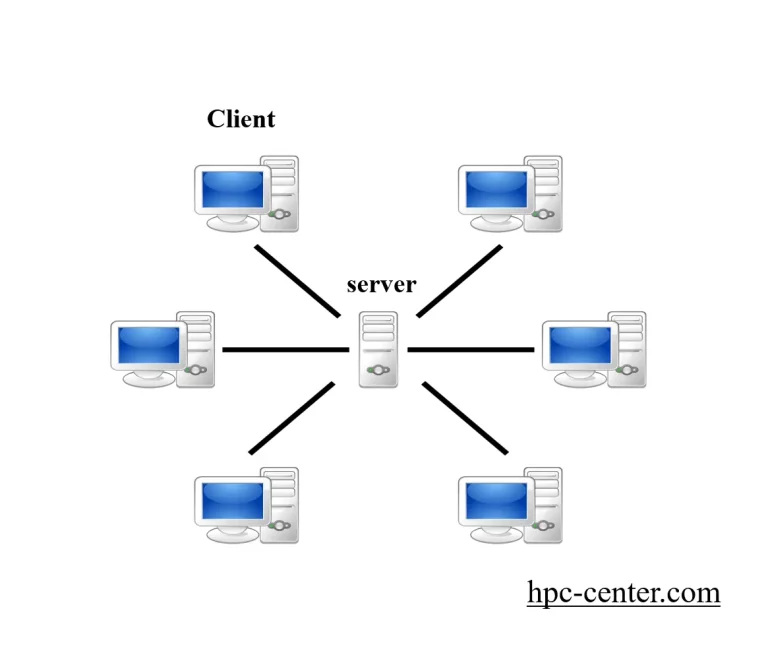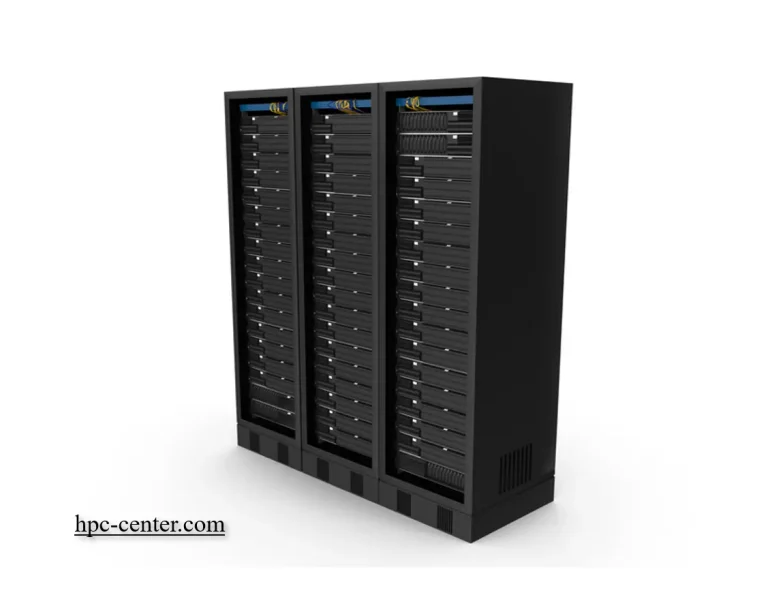In the age of technology, computer servers are of consequential needs for businesses and organizations. A computer server as a powerful system which is used to store and process various types of data. It provides services through a network. Knowing the intense increase in the production and the storage of data in recent years, the utilization of computer servers makes it possible for companies to store and manage data, provide shared access to specific resources, transport information, process applications, and etc.
A computer server is different from a typical computer as it is usually more powerful. The aim of this kind of servers is providing special services such as data management, web hosting, infomation storage, etc. Computer servers can ideally help you have much better performance in your business.

Computer servers have more powerful hardware and software components than others. The hardware components are mainly CPU, storage, memory, fast network interfaces (fiber-optic or ethernet, etc), hard drives, power supply, etc. Computer servers often use specialized operating system which enables them process jobs in an organized way.
As mentioned before, the primary function of a computer server is to serve data or computing resources to users. The process of providing services is done upon the user request. But how does a client-provider interaction works? Here is the answer:
In the first step, the client sends a request to the server through a network and asks for what service they need. Then the server receives the client’s request and processes the content to prepare what it is asked for. During process the server may interact with other resources. In the final step, the server sends back the best response and the respond appears on the client’s screen. For example, when you click to visit a webpage, your browser sends a request to its web server. After that, The web server gets the request, looks for the webpage and then provide the content of the webpage you clicked on. Finally, it pops up on your screen. The request can be anything like accessing or downloading a file, loading a webpage, making a database query, or processing a form.
Servers enable a wide range of services; In fact, all the things we do over the internet such as surfing, working, advertising, etc. rely on servers with specific computing power.
There are different types of computer servers. They can be classified into 10 catogories. They are:
1. Web server: It is a hardware or a software that provide services to users by internet. It controls requests from clients and deliver the content and the web that is requested.
2. Application server: It is a platform that get the environment ready to run applications. As an operator between the backend system and the web server, it executes complex business tasks, database interactions, data processing, etc.
3. Mail server: It is a server that manages email messages. Generally, it is a good system to handle email communication between users and provider systems over the internet.
4. Database server: Database server is served for handling data through an arranged configuration. It consistently checks whether the data is available for users and servers.
5. Media server: It is a software (or a hardware) that is used to process and show media content to clients.The content can be music, images, videos, and files and clients can be any devices that can connect to internet.
6. File server: File servers are providers of files storage and management. They allow access to users across a network to share files, backup and recovery data, organize files, etc.
7. Proxy server: The system that sits between the internet and a client and operates as a gateway to send requests to destinations and receive the responses to the clients can be called a proxy server. A proxy server is used for enhancing performance, security, and privacy.
8. Cloud server: It is a server that provides computing resources. The resources include processing power, storage, connectivity over a network. By the services, users can remotely manage and deploy the data.
9. Game server: A game server acts as a host for online video games which has many players. Players can connect to the server as a central hub to play online games together. Game server guarantees all players can play in real-time game without delay.
10. DNS server: DNS server convert domain names to IP addresses. DNS server is actually short for Domain Name System server. By converting domain names to IP addresses, smart devices can identify each other on the internet.

Computer server is known as a suitable computational resource in the modern world today. It allows clients use fast processing in the field they want. Some use cases of computer servers are introduced as follows:
1. Web hosting: Website and email hosting are of tasks that a computer server performs. As a web host, it hosts websites, manages web traffic, and handles email services for individual users or organizations.
2. Cloud computing: Cloud services are referred to systems that provide computing services made for users through the internet. Cloud services are requested by third party providers, delivering data storage, applications, etc. through virtual or physical servers. There are three main types of cloud services that are more common. They are PaaS, SaaS, and IaaS.
2.1. PaaS (Platform as a Service): It is a platform-based service that provides hardware and software tools for users to develop their applications. It is mainly used by developers, as it makes the work easier by providing environment to deploy, run, and manage data and applications.
2.2. SaaS (Software as a Service): Generally, SaaS provides easier access to powerful software applications via a web browser without having to run them locally on your system. Thus, it eliminates the need for powerful IT resources.
2.3. IaaS (Infrastructure as a Service): It provides virtualized hardware resources through clouds which makes It a good choice for applications tasks execution, website host, and resources storage. By IaaS, it is not needed to deal with physical hardware anymore and businesses can optimize their infrastructure while reducing operational costs.
3. Database management: As a database manager, computer servers can collect and analyze enormous amount of data and handle databases to have efficient storage, recall and processing them.
4. High Performance Computing (HPC): High performance computing are widely used today. Computer servers are tools to do heavy tasks such as financial modeling, scientific research, nuclear reaction analysis, genetic and engineering simulations, etc,
5. Virtualization: To utilize resource better, computer servers can run various virtual machines in less time. They also can containerize and manage containers to run applications in different environments without delay.
6. Backup and storage: File servers and NAS (Network Attached Storage) are servers store and manage data in large amount. Users can access data over a network, making them ideal for businesses to maintain work with data backup and storage.
7. Big data analysis: It includes massive processing of data to gain results.
8. Security and surveillance: An example of protective infrastructural server is firewall servers. Protective infrastructures controls incoming and outgoing network traffic and surveil networks.
9. Multimedia and games: By computer servers, client can run multilple-player real-time games without being worried of possible server collapse. They also can enjoy using streaming video online and other multimedia content.
10. Communication: Host applications need powerful enough servers to handle communication environments. Otherwise, users may experience delay in delivering messages.
In this age, computer servers is widely used all over the world. Recenty-built servers are more powerful and perform better than past. By computer servers, businesses can do a wide range of work namely hosting databases, websites, applications, and more. Computer servers have a key role in computing tasks. Today, all people can benefit services provided by computer servers. By renting a computer server, users can access reliable, high-performance, and secure services without coping with high costs and difficulties of working with physical hardware. Scalability, flexibility, constant support, and multiple additional features are positive points that can not be neglected in the rent.
Related links